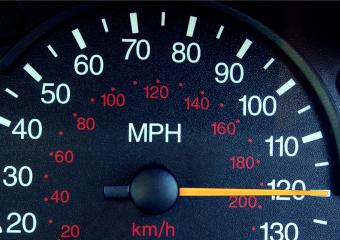Case report: Avoiding a totting up driving ban
Our client was accused of speeding. He was seen by a police officer travelling at 85mph on a 50mph road. He already had 9 penalty points on his licence from previous offences.
You’ll probably know that the law is pretty clear on penalty points, you can get up to 11 points on your licence and you’re fine to keep driving. But, if you get 12 or more penalty points then you are subject to the totting up provisions, which basically means you will be disqualified from driving for a period of six-months. However, if you totted up in the three-years before then you will be subject to a minimum of a one-year ban. If you somehow manage to tot up three (or more) times in a three-year period, then you will be banned from driving for two-years!
In our case, our client was facing either an immediate driving ban given the very high speed, or six-penalty points. The sentencing guidelines suggests a driving ban of 7 to 56 days, which you’ll note is considerably shorter than six-months (which is about 183 days). Therefore, in the past, a good tactic for avoiding the totting up ban is to ask the court to ban outright for a shorter period since even the longest driving ban would be shorter than the totting up ban.
However, the Sentencing Council recently updated its guidelines on totting up disqualifications to say that courts should now avoid imposing an immediate driving ban if that means the driver escapes the longer totting up ban. This doesn’t mean that it is impossible to avoid totting up, but it is much more difficult.
Our client initially sought to mitigate his position by seeking a 14-day driving ban. The magistrates took notice of the new guidance from the Sentencing Council and declined to take that course. Instead, they imposed 6-penalty points on our client’s driving record. This left him with 15 points and facing a 6-month driving ban.
We were, obviously, prepared for this to happen and had prepared thoroughly for it. At this point, we notified the court that we now sought to avoid disqualification from driving altogether, as banning our client would cause exceptional hardship. We called our client who gave evidence that a ban would mean the loss of his employment as the earliest he could get to work by public transport is three-hours after the start of the working day, which for him is 7am. He gave evidence that if he lost his job, his company would have to lay off three members of staff who work under his supervision. The company would also lose money, which would have a knock-on effect for an already loss-making business that was trying to rescue itself. Next, we called the Managing Director of our client’s company to give evidence. He confirmed what our client had said in evidence and explained why the company would have to take that course of action.
The magistrates’ considered their decision and returned to find that disqualifying our client would cause exceptional hardship to his colleagues and his employer. As such, the avoided the driving ban altogether.
It may seem odd that a court would refuse to disqualify for 14 days because they felt the offender deserved a six-month ban, only to then impose no ban at all. I don’t seek to dissuade you from thinking that is odd, because it is. It is the result of the way in which the law works because the magistrates must consider their sentence first and then move on to consider whether to impose a totting up ban – which, although it may feel like the most significant part of the sentence is not, in fact, part of the sentence at all but is an ancillary order that flows as a consequence of multiple convictions.
You may also wonder why somebody would ask for a short ban rather than going all out to avoid any disqualification at all. The answer to that is all about hedging your bets. Let’s say you are going to invest some money, you could put it all into a high-risk investment that will get you a great return if all goes well; however, if it goes badly, you will lose everything. This is our exceptional hardship application. The potential wins are huge but so is the potential loss. Alternatively, you could go for a less risky investment that will give you a good return but one less exciting than going all out. This is us asking for a short ban – true you’ll get a ban but you also know that even if you get a 56 day ban you’ll still be back on the road 127 days earlier than if you lose on exceptional hardship. If you are in a position where you can afford a short ban, e.g. because you can take holiday from work, but cannot afford a longer disqualification then you might not want to take the risk of losing on exceptional hardship.
If you are facing a totting up ban, call us today and speak to one of our expert solicitors. You can reach us on 020 8242 4440 or via our contact page.

